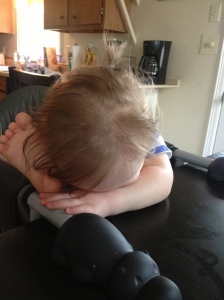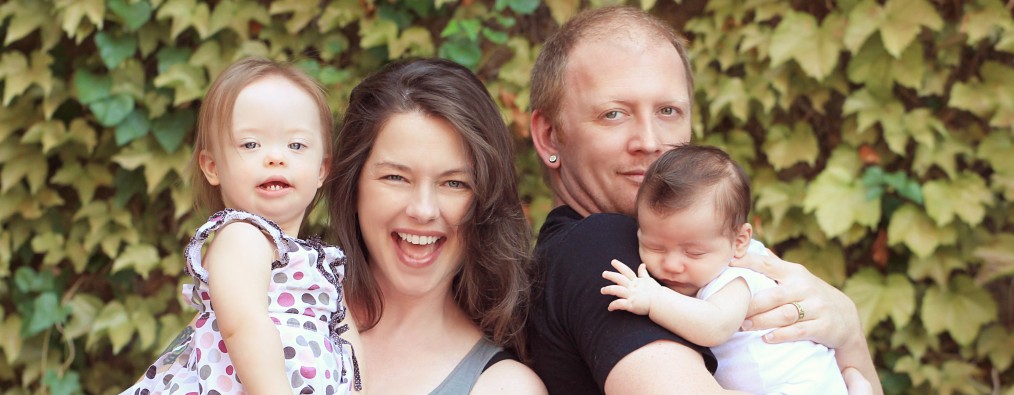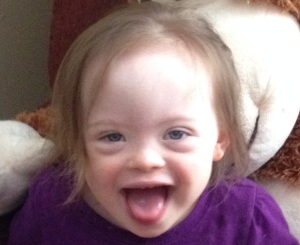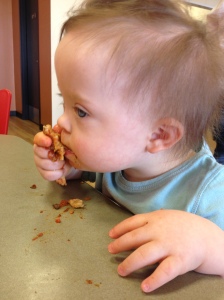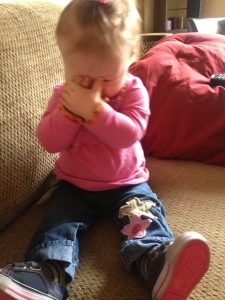Anger.
The very word contrives all sorts of images in my head from the very mild to the most violent. Anger is the unspoken emotion that we all feel but rarely feel comfortable and safe to discuss within our social circles. Becoming a parent forces you to confront things, like anger, that you may never have explored before and then in the same breath, expects an answer.
This was a much needed girls night in- wine and pjs and excellent company. Although we all come from varying backgrounds and have had very deifferent life experiences, we have so much common. The biggest thing we have in common is that we are all moms of toddlers. While some of us are veteran mothers and others are newbies (like myself)- we all appreciate the comfort in being amongst a group of people that simply understand that tired, half crazy look you don or the inappropiate yawn that occurs when someone is telling a story and the constant interuptions that steer you away from being a ‘good listener’.
As we sat and chatted about our own realities, our men, our daily responsibilities, we naturally also chatted about our toddlers. Soon we discovered that each one of us is being confronted with the same complex issue: hitting. Suddenly our sweet children are embracing their inner monster and showing us a whole new side to their personality. The anger emotion is unfolding.
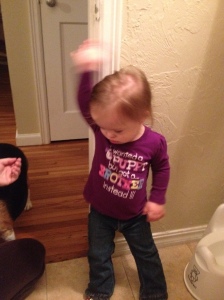
With my daughter, I have observed her hitting for two reasons: 1) She hits for attention and 2) She hits when she is frustrated/angry.
The first was a rather simple fix for me- Upon holding her hands and looking her in the eyes, I would tell her in a calm but serious voice, “We do not hit.” or “No hitting.” I would watch the realization come over her eyes as she processed this information and saw the wheels turning as she thought what she should do instead. And naturally I offered her a solution- when you need mommy come over and use your voice and I will immediately address you. After a couple of trial and errors she and I nailed this one and within 3 days, she no longer hits to get my attention. (Mommy win! Yay!)
Feeling pretty confident in my discipline technique and very proud of my daughter, I moved on to address #2. Hitting when frustrated or angry. Hmmm. As she lifted her hand to strike me because she was upset over my unwillingness to play the game her way- I proceeded with the above measures -only when it came to telling her how to express her anger differently, I drew a blank.
Suddenly I realized that I had no idea how to appropiately express one’s anger. I was never taught how to express anger or frustration. I grew up feeling as though I wasn’t allowed to be angry. Anger was bad. You were punished for hitting but never given an outlet for the anger/frustration behind the hitting. As I discussed this revelation within my circle of friends, it quickly became apparant that none of us felt we had ever been taught how to express our anger. Now, I am not trying to take a stab at my parents, here, because I have no doubt that they probably weren’t taught either. So my question is- why not? Are we, as a society, so afraid of anger that we cannot allow it to exist even for a fraction of a second? Watching your child hit someone can be a frightful experience for a parent and of course you want to (and should) correct that behavior….but how?
I believe there is a difference between behavior and state of mind. There is a difference between discipline and punishment. Obviously my goal is to stop the behavior of hitting but to really accomplish that, I feel I must also change the state of mind behind it: Aggression born from anger. So once again I must face the question- how should one properly express their anger?
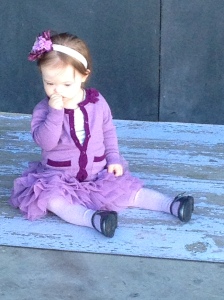
As my friends and I spoke, we tossed around several discipline theories and debated different schools of thought. And while I definately have my own opinions and thoughts on what I consider to be appropiate and inapporiate, I found it very enlightening to listen in.
Naturally the method of spanking was brought up, as most of us received spankings as punishment when growing up. One friend had an interesting idea that spankings are a good form of punishment so long as they were delivered appropiately. She stated that a spanking should not occur immediately after the event and should not be done when the parent was upset. This gave me pause- I tried to imagine myself in a calm and loving state of mind, spanking my child in response to her bad behavior. I couldn’t manage to do it. The very act of hitting, to me, was only born from a state of frustration and anger, not calmness and definately not love. I am looking to discipline my child, not punish.
The one time I ever slapped my daughters hand was because I was irritated and angry that she kept hitting me. She was hitting me because she was mad at me and I hit her back because I was mad at her…..for hitting me… I refer to this event as one of my bigger mommy fails.
No, spankings are not a technique I am qualified to use. Next.
So what about time-outs? I like the idea of a time-out. To remove oneself from the moment of anger so you can calm down and begin to relax. However do very young children have the comprehension ability to actually do that? Or do they simply feel like I did when I was little, ‘I got angry then I got in trouble’. It is my understanding that utilizing a time-out effectively includes not only separating the child from the activities of the room for a brief period of time but also to allow and encourage a reconcilaition once its over. All primates, even non-human primates exhibit a need for conflict resolution. Or rather, the need to reconcile with the one they got into trouble with.
I have attempted a time out with Lily 3 times for hitting. I warned her that if she hit me again, she will have a time-out. She hit me again and I picked her up and put her in a designated spot a few feet away from anything else. I told her she must stay there and then I stood nearby with one eye on the clock and the other on her. I observed her getting quiet, perhaps thinking about what is happening, perhaps not. After about 30 seconds, I knelt down and took her hands and repeated to her that we do not hit people. Then I offered her reconciliation- a giant hug. Although I felt that she understood on some level that she was in time out for misbehaving, I didn’t really feel as though I addressed how to properly express her anger.
I appreciate the art of the time out but it still fell short for how to teach her to properly express her anger. Next.
The only other parenting theory that was touched on was that of purposeful ignoring of the behavior. Okay, I get it- even negative attention is attention and so if you give your child absolutely no attention for an unwanted behavior then they will stop it- right? Although that could herald a good response for hitting for attention but does not aid me in helping her with anger. Next.
After conversing within my circle of friends, I held my thoughts on my dilemna. How to teach my children to properly express their anger. After some long meditative moments on this, it dawned on me……what is anger? Anger is an emotion that fills one with such powerful negative energy that one is compelled to forcefully expel it. Not expelling it can lead to destruction (either internal or external) and expelling it in a form of aggression can lead to big trouble. What about providing a physical way to expel this energy that does not cause harm or fuel aggression? What about breathing? A simple thing, taking a breath, expelling a breath. Perhaps it is a silly idea from an overtired, over anayltical new parent but then again, maybe it could work.
I have begun to teach my daughter (and when he gets older my son too) that when I see her getting angry to take a big breath and forcefully blow it out. I guide her through that breath to release the anger and focus on changing her state of emotion. Since I have begun this, I have noticed that when Lily begins to get frustrated or upset, she will (most of the time) attempt to calm herself down. Sometimes by taking that breath, sometimes by getting very still and quiet and sometimes turning away, briefly, from the source of her frustration. I am struck by how grown up she appears to me as I watch her do this. Now, she does still hit out of anger, but it is not often and is beginning to fade as I feel I have finally begun to answer my question of how to teach her to express her anger. As she gets older and is able to communicate verbally, it is my intention to guide her to using her words to help express her emotions. Until that time, I will build on the breath.
A few notes from the bench: I am not citing any sources or claiming to be an expert on discipline because I view myself as an educated but new parent. This blog is made up of entirely my own opinions, experiences and reflections. I choose what is right for my family within the morals and values I serve to uphold. I believe that children should be respected and diciplined, not punished. I view myself as my childrens’ teacher and caregiver, not their owner and master. They are uniquely them and I am both challenged and blessed to prepare them to take on their life.
